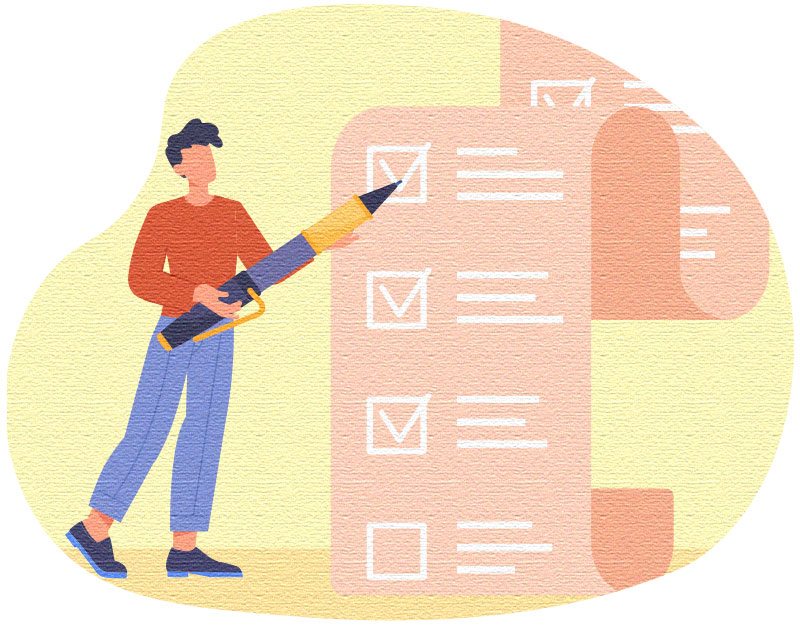Preparation is Paramount for Possible Challenges | Scales on Censorship
A school librarian worries about a vocal parent; a public librarian shares concerns about possible challenges; and a trans student takes on the school board.
 |
Alexey Yaremenko/Getty Images |
I’m a librarian in an elementary school with a diverse student body. Last year a parent asked the school board to remove informational books about Christmas celebrations in other countries from all schools. The board retained the books, but the parent was very loud about her defeat. This was my school’s first book challenge. I’m nervous about handling this kind of situation.
It’s impossible to predict what this parent will do next. She may go to media, petition neighbors, or use social media to promote her cause. Do not let any of this intimidate you. Instead, be encouraged that you have the support of the school board on this issue.
To prepare for future challenges, you can do several things:
• Know the school district’s collection development policy.
• Understand the procedure for dealing with challenges.
• Review all curriculum policies and guidelines.
• Reiterate the mission of the school and library to faculty and students.
This may be a good time to review the key concepts of collection development found in the 10th edition of the American Library Association’s Intellectual Freedom Manual (p. 147). Three of these key concepts address the importance of diversity.
Don’t lose sight of your library’s mission—to provide books and materials that support students’ learning and recreational needs. That includes holiday celebrations in other countries.
I’m the director of a public library in a town where there have been many attempts to censor books in schools. So far, my library has not experienced an increase in censorship cases, but I fear that it’s a matter of time. How can I prepare my staff?
Just because a school district has experienced an uptick in challenges doesn’t mean that the public library will. But you are smart to arm your staff with the tools and information they’ll need if they are approached by an angry patron determined to have certain books removed.
First, make sure that all staff are included in professional development sessions. Since those working in circulation are often not professional librarians but are on the front lines with patrons, they need to know the public library’s collection development policy and service to patrons policy. They must understand that it’s important they remain objective, and that their personal views about certain books and materials aren’t shared with patrons. Ask them to report any encounter with a patron to their superior. This way, everyone understands the dispute should it escalate.
The American Library Association’s Intellectual Freedom Manual is perhaps the best resource for topics related to intellectual freedom. You might also explore the organization’s website for current information (ala.org/oif).
Plan a training session where staff role-plays these scenarios, possibly using cases from your local schools as examples. Ask the staff to locate a policy that addresses each situation. Consider including a roundtable discussion as a non-threatening way to address staff fears. Watch for virtual First Amendment workshops from the Freedom to Read Foundation and encourage staff to participate. If these workshops are outside your budget, consider sending one or two librarians and asking them to share what they learn with other staff members.
We are under a school board order to place LGBTQ books on a restricted shelf in all libraries. This means that students must have parental permission to borrow these materials. A transgender eighth grader in my school has filed a challenge to this order and recruited over 30 students to support her efforts. My principal sees this as a disruption.
For now, obey the school board order, but work quietly to get the books restored to the open shelves. When students ask for the books, be honest and acknowledge the challenge. Let them know that you are proud of them for taking a stance. Students have First Amendment rights, and they should be encouraged to exercise them. Cases like this sometimes end up in court. Who knows? Your students may become plaintiffs. Your principal should see this as an opportunity rather than a disruption.
Pat Scales is the former chair of ALA’s Intellectual Freedom Committee. Send questions to pscales@bellsouth.net.
RELATED
The job outlook in 2030: Librarians will be in demand
The job outlook in 2030: Librarians will be in demand
ALREADY A SUBSCRIBER? LOG IN
We are currently offering this content for free. Sign up now to activate your personal profile, where you can save articles for future viewing






Add Comment :-
Be the first reader to comment.
Comment Policy:
Comment should not be empty !!!